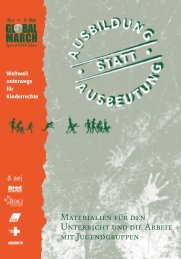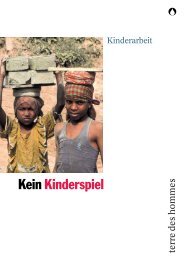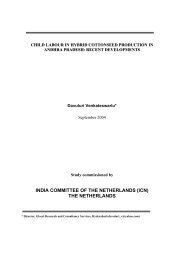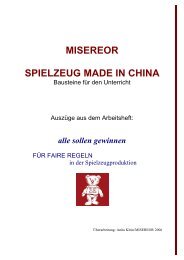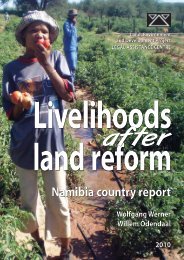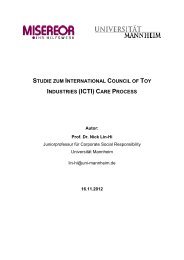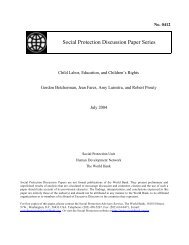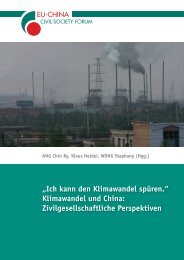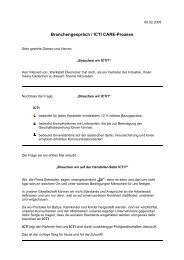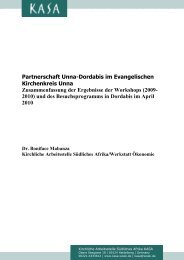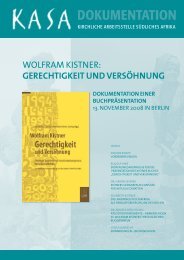“You'll Be Fired if You Refuse†- Human Rights Watch
“You'll Be Fired if You Refuse†- Human Rights Watch
“You'll Be Fired if You Refuse†- Human Rights Watch
You also want an ePaper? Increase the reach of your titles
YUMPU automatically turns print PDFs into web optimized ePapers that Google loves.
IV. Anti-Union Activities<br />
If you don’t ever talk, <strong>if</strong> you don’t ever complain, then the Chinese<br />
[managers] will like you. 272<br />
—Union Representative at Sino Metals, November 2010<br />
While at least one union exists at each Chinese-run copper mine, the Chinese copper<br />
mining operations in Zambia have inhibited workers from joining Zambia’s oldest mining<br />
union, the Mineworkers Union of Zambia (MUZ). MUZ was established in 1948, prior to<br />
independence, as the Northern Rhodesian African Mineworkers’ Union. The second main<br />
union, the National Union of Miners and Allied Workers (NUMAW), was formed in 2003.<br />
Both represent thousands of miners across the Copperbelt, but management in several<br />
Chinese-owned operations appear to have chosen to accept only NUMAW, despite some<br />
workers expressing a clear preference to be represented by MUZ. Domestically in China,<br />
there is only one legal trade union—the government-affiliated All-China Federation of Trade<br />
Unions—and many problems described in this section are similar to those experienced<br />
within China. 273 At every non-Chinese copper mine, workers have been free to establish<br />
and join branches of both unions.<br />
In addition to impeding the establishment of MUZ, union leaders at the Chinese operations<br />
said that they faced discrimination because of their union activities. These problems were<br />
not limited to the Chinese mines—union representatives at several non-Chinese mines<br />
also expressed concerns for this. This raises broader issues regarding the right to<br />
association and union activity in Zambia.<br />
The right of workers to join unions of their choice is protected under international human<br />
rights and labor law. The International Covenant on Civil and Political <strong>Rights</strong> and the<br />
International Covenant on Economic, Social, and Cultural <strong>Rights</strong> both provide for the right<br />
to freedom of association with others, including “the right to form and join trade unions”<br />
for the protection of their interests. 274 Likewise, ILO Convention No. 87 concerning Freedom<br />
of Association and Protection of the Right to Organise states, “Workers and employers,<br />
without distinction whatsoever, shall have the right to establish and, subject only to the<br />
272 <strong>Human</strong> <strong>Rights</strong> <strong>Watch</strong> with union representative A at Sino Metals, Kitwe, November 7, 2010.<br />
273 “Trade Unions in China: Membership Required,” The Economist, July 31, 2008.<br />
274 International Covenant on Civil and Political <strong>Rights</strong> (ICCPR), G.A. res. 2200A (XXI), 21 U.N. GAOR Supp. (No. 16) at 52, U.N.<br />
Doc. A/6316 (1966), 999 U.N.T.S. 171, entered into force Mar. 23, 1976, art. 22; ICESCR, art. 8.<br />
85 HUMAN RIGHTS WATCH | NOVEMBER 2011



